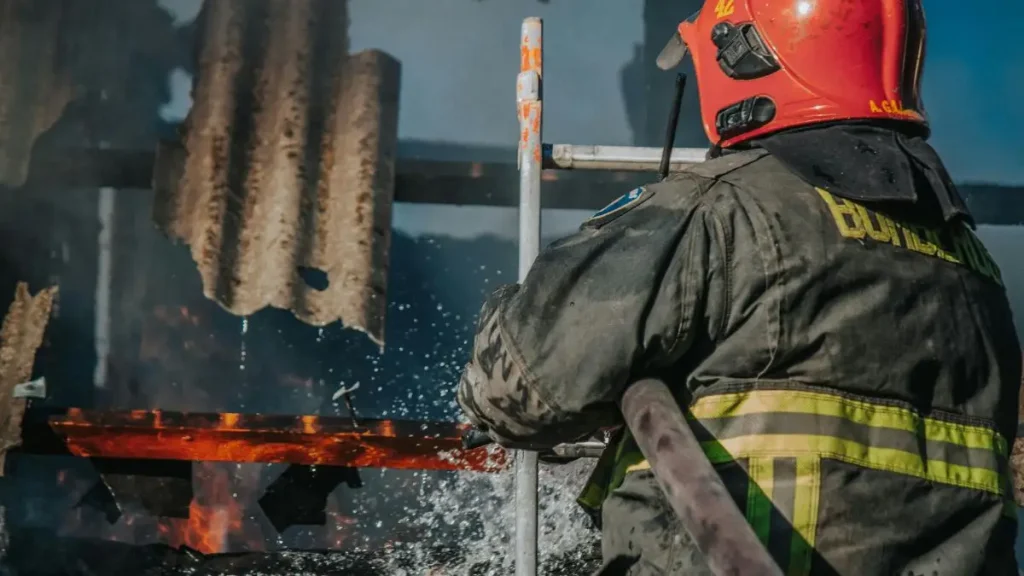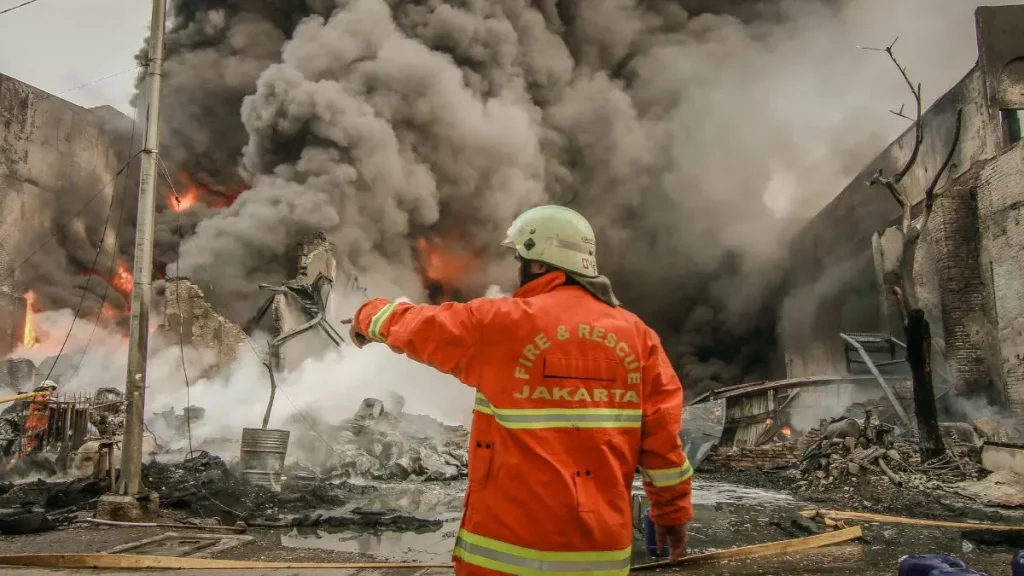Multiple Fire Companies Respond to House Fire in Town of Arkwright
I woke up to the reports and traced the scene: just before 6 a.m., crews were called to a structure fire on Park Road in the Town of Arkwright — the Arkwright home fire that shook the neighborhood early Sunday.
When firefighters arrived, the resident and her dog had already gotten out; that relief is the first thing I want you to hold on to. Lives were saved before crews even pulled hose lines.
The Forestville Fire Department says the first water source — a dry hydrant — ran into trouble, so crews had to switch to another hydrant about three miles away. Because of that gap, three additional tanker trucks were requested to shuttle water to the scene.
Eight fire companies responded in total, with support from Chautauqua County Emergency Services, the Red Cross, and National Grid. I mention those names because this wasn’t a single-truck response — it was a coordinated effort, and that matters when you live in a rural place like this.
Did you hear about this locally or see crews in your area? If you did, tell me what you saw — those on-the-ground details often matter more than the first headline.
Firefighting Efforts: Crews Battle Water Supply Challenges

I read the official report from WGRZ, and one detail stood out immediately — the hydrant issue. Firefighters first tried to draw water from a dry hydrant near the home, but for reasons still unclear, it failed after the initial flow. Imagine standing there, hoses charged, flames pushing outward, and your water line goes dead. That’s a nightmare no firefighter forgets.
Crews didn’t give up. They switched tactics fast — using another hydrant three miles away, shuttling water through tankers from nearby departments. It’s not easy work. Every refill costs time, and time is what a burning home doesn’t have.
That quick adaptation, though, is what stopped the fire from spreading to nearby structures. And that’s why these multi-agency responses matter — each department knows how to cover for the other when equipment or terrain works against them.
If you’ve ever lived outside a city, you already know — rural fires aren’t just about flames; they’re about distance, logistics, and grit.
Multi-Agency Response: Eight Departments Join Forces
According to the Post-Journal, this wasn’t a small-town response. Crews from Forestville, Sheridan, Silver Creek, Cassadaga, Stockton, East Dunkirk, Sinclairville, and Sunset Bay all turned up, along with support from Chautauqua County Emergency Services, National Grid, and the Red Cross.
Think about that for a moment — eight departments coordinating before sunrise, miles apart, moving tankers, managing communication, and working in freezing conditions. It’s the kind of teamwork most people never see, but it’s what saves lives in the countryside.
There’s a reason these departments drill mutual-aid scenarios: when one system fails — like that hydrant — the others step in seamlessly. It’s messy, fast, and deeply human.
If you’re from Chautauqua County, you probably know one of these volunteers personally. They’re not just firefighters — they’re the neighbors who leave warm beds at 5 a.m. because someone’s alarm went off down the road.
This kind of coordinated effort reminded me of another intense response in Darlington County, where crews battled an overnight blaze with similar teamwork.
Resident Safe, But Home Severely Damaged
By the time the fire was under control, the damage was devastating. The home was nearly destroyed — local reports confirmed that firefighters fought for hours before declaring the scene safe. But the one thing everyone agrees on: the resident and her dog got out alive.
That single fact changes the whole tone. Yes, a house was lost, but a life wasn’t. The Red Cross stepped in right away to help with temporary shelter and essentials — something too many homeowners never think they’ll need until it’s their turn.
It’s a painful reminder that “home” is more than walls — it’s memory, safety, and routine. Losing that overnight isn’t just physical; it’s emotional. But that escape? That’s a success story within a tragedy.
It’s a relief story that echoes what happened in Massachusetts, where a family and their pets escaped flames just in time.
Fire Investigation and Next Steps

Right now, the Chautauqua County Fire Investigation Team is reviewing how and why this blaze escalated so quickly. Crews are examining the failed hydrant, the heater placement, and the ignition source. So far, no foul play is suspected — early signs point toward an accidental start.
It’s too soon for official confirmation, but these investigations matter because they close the loop. They’re not about blame — they’re about learning what could save someone else’s house next time.
If you’re following this story locally, keep an eye out for updates from the Forestville Fire Department’s Facebook page or county emergency bulletins — that’s usually where the first verified statements drop.
Lessons for Rural Fire Preparedness
Here’s where this story hits home for anyone living outside a city grid: water access and heating safety are not just technicalities — they’re survival factors.
If you rely on a dry hydrant system, make sure it’s inspected regularly. Those systems need upkeep, especially before winter. And if you use space heaters or propane heat sources, follow a simple rule: three feet of clearance from anything flammable.
The U.S. Fire Administration says that heating equipment is the second leading cause of home fires in rural America, right behind cooking. That stat alone is enough to double-check how close your heater is to that old wooden cabinet or curtain.
Maybe the Arkwright fire won’t be the last, but if it makes one more homeowner pause before plugging in a space heater — that’s a life potentially saved.
I’ve started following a few safety alert channels on WhatsApp lately — quick updates about fire safety tips, rural response guides, and real incidents like this. They’re worth joining if you want those reminders before disaster strikes.
Community Support & Volunteer Efforts
In small towns like Arkwright, a fire isn’t just a local headline — it’s personal. By mid-morning, neighbors had started checking on the homeowner, offering blankets, food, and rides. You can feel that quiet network of care that never makes it into news reports but keeps people standing after everything’s gone.
Many of the firefighters who responded are volunteers — men and women who’ll still show up to work on Monday after spending their Sunday morning in smoke and frost. That’s the part I always want readers to notice: rural fire protection runs on dedication, not payrolls.
If you’ve ever thought about volunteering, this is the reminder you needed. Most departments in Chautauqua County still need trained members, even part-time responders.
You don’t have to be on the front line — logistics, communications, and safety support are all vital. The next time you see a fundraiser jar at a diner or a firehouse breakfast, drop something in. These people earned it.
Similar lessons came out of the South Charlotte fire that sent one person to the hospital earlier this year — a sharp reminder of how fast home fires can turn critical.
Key Takeaways from the Arkwright Home Fire
When I step back from this story, three things stay with me:
- Preparation matters more than luck. The homeowner had an escape plan and got out in time. That’s the difference between tragedy and survival.
- Community saves what fire can’t. Volunteers, neighbors, and the Red Cross stepped in before the ashes cooled.
- Infrastructure gaps are real. A failed hydrant shouldn’t decide a home’s fate — but it did. That’s something policy and funding need to address.
If you live in a small town, test your smoke alarms tonight. Walk through your heating setup. Ask your fire department when the next community drill is.
Fires don’t give warnings — but they always leave lessons. So here’s mine to you: What’s the one thing you’d fix in your own home if this fire happened down your road?
For more real stories and safety takeaways from across the country, visit our website Build Like New— where every fire story comes with a lesson worth learning.
Disclaimer: Details in this report are based on official statements from the Forestville Fire Department and local reports as of November 2025. Information may be updated as the Chautauqua County Fire Investigation Team releases further findings.


